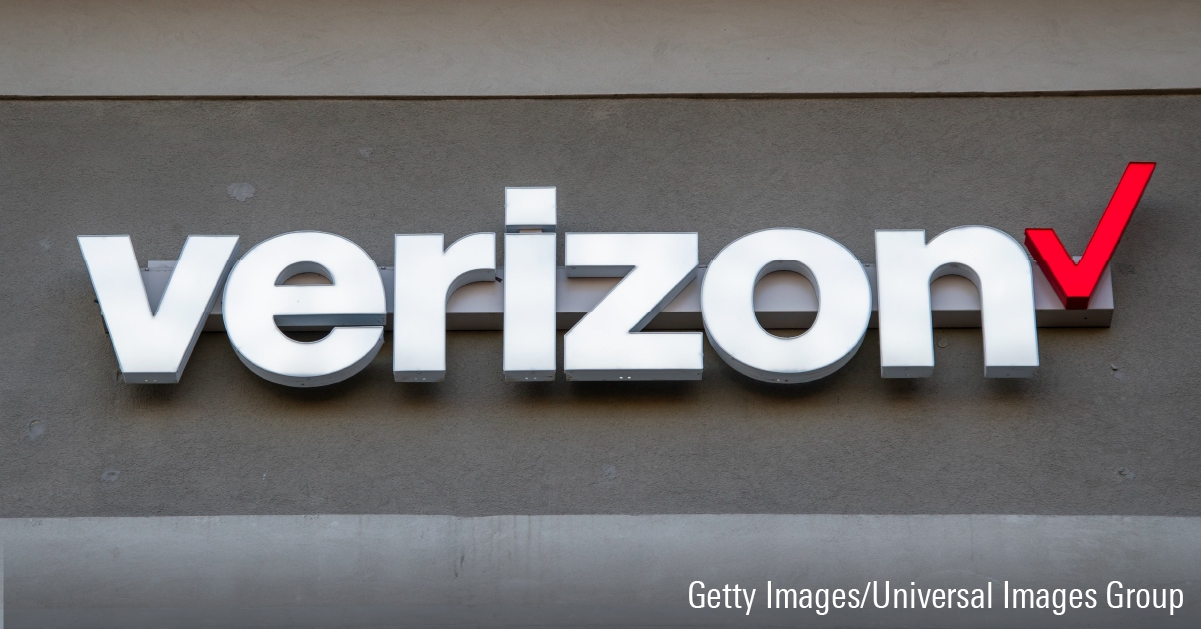Verizon Earnings: Price Increases Drive Solid Wireless Revenue Growth
We believe Verizon’s stock is undervalued.

Key Morningstar Metrics for Verizon Communications
- Fair Value Estimate: $54.00
- Morningstar Rating: 4 stars
- Morningstar Economic Moat Rating: Narrow
- Morningstar Uncertainty Rating: Medium
What We Thought of Verizon Communications’ Earnings
Verizon Communications’ VZ first-quarter results largely met our expectations. Wireless revenue growth was robust, with recent price increases driving higher sales without spurring significantly higher customer defections. Cash flow was relatively weak, but the first quarter is typically seasonally soft, and this one included a one-off pension contribution. Management also reiterated its 2024 forecast, which calls for free cash flow in the same range as 2023. We expect Verizon to make steady progress growing the business and repaying debt this year, and our fair value estimate remains $54 per share.
Wireless service revenue increased 3.3% year over year, up from 1.3% during 2023 and pacing toward the high end of management’s 2.0%-3.5% target. Verizon lost 68,000 net phone customers during the quarter, a bit better than the 127,000 lost a year ago. Average revenue per postpaid consumer account increased by 4.4%, the strongest growth (adjusted for an accounting change in 2023) in several years. Price increases implemented in March, which affect about 40% of the consumer customer base, should provide additional growth over 2024. The pace of customer churn was roughly flat versus a year ago, though the full impact of the price increase may not be fully felt until customers get a bill or two at the new rate.
The pace of customer phone upgrades continues to plummet, pressuring total revenue growth but boosting profitability. Total consumer revenue increased only 0.8%, but the segment EBITDA margin expanded by more than 1 percentage point to 42.6%, lifting segment EBITDA by 3.6%. Business services revenue remains weak, down 1.6%, as wireless growth failed to offset a 6% decline in fixed-line sales. Business segment EBITDA declined 7% on an unusual jump in SG&A expenses that appears to be tied to restructuring efforts. Consolidated revenue was up 0.2% versus a year ago, while adjusted EBITDA increased 1.4%.
Verizon Communications Stock vs. Morningstar Fair Value Estimate
The author or authors do not own shares in any securities mentioned in this article. Find out about Morningstar’s editorial policies.

/s3.amazonaws.com/arc-authors/morningstar/12c6871b-2322-44d8-bd98-0437fa1a0a07.jpg)
/cloudfront-us-east-1.images.arcpublishing.com/morningstar/F5UMFVVKMVFRPGGUY4LONIK6OY.jpg)
/d10o6nnig0wrdw.cloudfront.net/05-03-2024/t_8ba91080cb4d43acae9d9119875abede_name_file_960x540_1600_v4_.jpg)
/cloudfront-us-east-1.images.arcpublishing.com/morningstar/KD4XZLC72BDERAS3VXD6QM5MUY.png)
:quality(80)/s3.amazonaws.com/arc-authors/morningstar/12c6871b-2322-44d8-bd98-0437fa1a0a07.jpg)